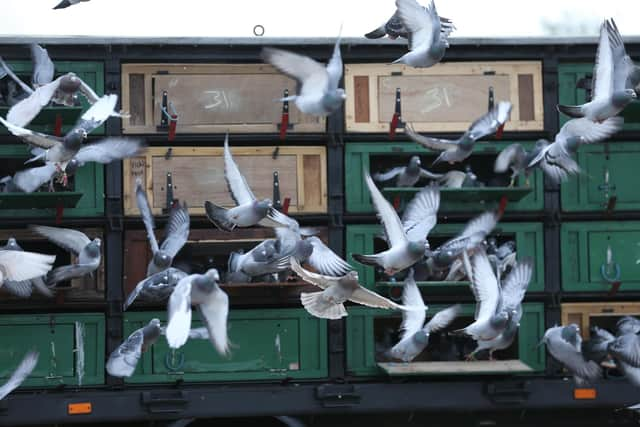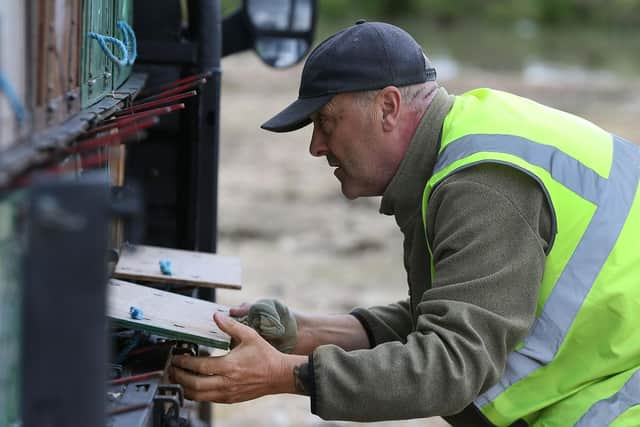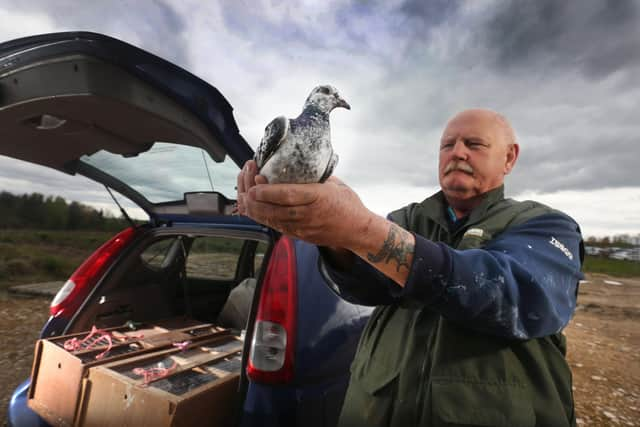Yorkshire's 'Pigeon Man' on the start of pigeon racing season and the rise of sparrowhawks
With one eye on the weather, the other looking out for hawks, 700 pigeons are released into the sky.
The sound is tremendous as they furiously beat their wings - creating a draught their trainer Brian White jokes almost blows him off his feet.
Advertisement
Hide AdAdvertisement
Hide AdThe British racing pigeon season has now started, and runs until September.


Owners are training their birds for the months of competitive flying, but it’s also the start of the nesting season for hawks.
While the sparrowhawk is now one of the most widespread birds of prey in Britain, until a few decades ago it was more or less extinct in many eastern counties. This was partly due to persecution, but also due to pesticide use in agriculture.
Now they are back in large numbers - good news for nature lovers if not for pigeon racers.
Advertisement
Hide AdAdvertisement
Hide AdThe great flocks of well-kept racing pigeons make extremely attractive hunting grounds for the female hawks as their young grow.


“The sparrowhawk she’s sitting in her nest and it’s quiet but when the chicks hatch out it’s wild. She is hunting all day long.
“We used to have one pair around Leeds, now we have got 10, and they will not touch a wild pigeon.
“They are all over the county - if you go up to Salts Mill they’ve got them in the tower there.
Advertisement
Hide AdAdvertisement
Hide Ad“They just attack them when they are in a big pack because it’s good meat.”


A member of Wyke Homing Society, Bradford, West Yorkshire, Brian owns and drives the pigeon transporter.
Regular as clockwork, the pigeons’ bus driver leaves his home at 7am, and drives his Ford Transit pick-up to regular stops at Shipley, Idel, Eccleshill, Fagley, Dudley Hill, the Conservative Club on Tong Street, Woodkirk Church at Morley, Ravensthorpe, and finally Thornhill, filling up with baskets as he goes.
The birds get released on land owned by Greencore, near Worksop, Nottinghamshire - which he says is a beautiful site - “no wires, no trees, plenty of liberation for pigeons to get up in the air”.
From there they fly home covering between 40 and 50 miles.
Advertisement
Hide AdAdvertisement
Hide AdThe 78-year-old has been involved with pigeons as a hobby for 42 years, but packed up racing in 2004, because he couldn’t afford it.
The Pigeon Man, as he’s known at presentations, loves what he does - but there is no money in it. It’s not quite like being a successful race horse trainer.
He says the training just covers his costs and bemoans that what used to be a working man’s sport is now “a rich man’s hobby”.
“You used to be able to buy a bag of corn for £3, now it’s £25, diesel was less than £1 a gallon, now it’s £8. When I was training 20 years ago it was 10p a pigeon, now it’s 30p and £6 a basket.
Advertisement
Hide AdAdvertisement
Hide Ad“But I love doing it and people appreciate me for what I am doing. Seeing them getting released is so exciting.
“Sometimes they’ll fly a minute a mile. Nobody knows how they navigate home from 500, 750 miles and they do it in a day or two. It is a marvellous hobby.”
Comment Guidelines
National World encourages reader discussion on our stories. User feedback, insights and back-and-forth exchanges add a rich layer of context to reporting. Please review our Community Guidelines before commenting.
